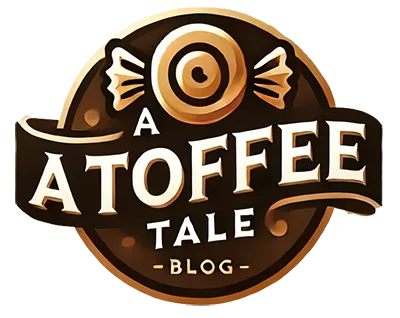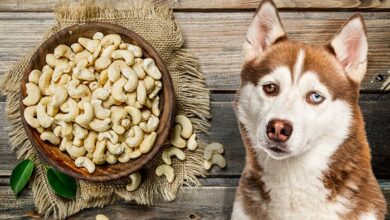Can Dogs Eat Bratwurst? A Safe Snacking Guide-2024

Can Dogs Eat Bratwurst? Bratwurst is a traditional German sausage made from pork, beef, or veal. It’s often seasoned with spices like garlic, nutmeg, and black pepper, which give it a rich flavor. While these ingredients are fine for humans, they can be harmful to dogs.
Bratwurst is usually cooked with oils or grilled, adding extra fat content to the sausage. This combination of seasonings and fats can make bratwurst a risky choice for your dog’s diet. Let’s take a closer look at whether it’s safe to share this treat with your pet. Let’s briefly discuss that- Can Dogs Eat Bratwurst?
Is Bratwurst Safe for Dogs to Eat? Can Dogs Eat Bratwurst?
If you’re asking, “Can dogs eat bratwurst?”, it’s important to know that bratwurst is generally not a safe food for dogs. While it might seem like a tasty treat, the high fat, sodium content, and potentially harmful seasonings make it a risky choice for your pet’s diet. Let’s break down why bratwurst should be avoided and what exceptions may exist.
High Fat and Sodium Content
- Risks: Bratwurst is often high in fat and salt, which can cause serious health issues for dogs. The excess fat can lead to obesity and pancreatitis, while high sodium levels can cause dehydration or kidney strain.
- Why It’s Not Safe: The fat in bratwurst can overwhelm your dog’s digestive system, especially if fed in large amounts. Sodium overload is also dangerous, particularly for dogs with pre-existing kidney problems.
- Recommendation: Limit foods with high fat and sodium to keep your dog healthy and hydrated.
Harmful Seasonings and Additives
- Garlic and Onion: Many bratwursts contain garlic and onion, both of which are toxic to dogs and can lead to severe health issues like anemia or digestive distress.
- Why It’s Harmful: Garlic and onion can damage red blood cells in dogs, leading to symptoms like lethargy, vomiting, and diarrhea.
- Recommendation: Always check for these toxic ingredients before considering any type of sausage or processed food for your dog.
Small, Unseasoned Portions as an Exception
- Rare Treats: While bratwurst is not ideal, offering small, unseasoned portions may be less harmful. However, even in this case, bratwurst should be given sparingly.
- Why It’s Better: If you do choose to give your dog bratwurst, ensure it’s free from any seasonings, garlic, or onion. It should be a very occasional treat rather than a regular part of their diet.
- How to Serve: Serve plain, cut into small pieces, and keep the portion minimal to avoid overwhelming your dog’s system.
Dogs with Sensitive Stomachs or Health Issues
- Avoid Bratwurst Entirely: For dogs with sensitive stomachs or underlying health conditions, bratwurst is best avoided altogether. Dogs with pancreatitis, heart issues, or kidney problems should never be given bratwurst.
- Why It’s Dangerous: The high fat, sodium, and seasoning can exacerbate pre-existing health problems, leading to more severe complications.
- Recommendation: Stick to dog-safe treats and consult with your veterinarian to ensure your pet’s diet supports their health needs.
So, “Can dogs eat bratwurst?” The short answer is no, it’s generally not recommended. Bratwurst poses several health risks due to its fat, sodium, and seasoning content. While small, unseasoned portions may be less harmful, they should only be given on rare occasions. For dogs with sensitive stomachs or health issues, it’s best to completely avoid bratwurst and opt for safer alternatives. Always consult your vet when in doubt about introducing new foods to your dog’s diet.
Risks of Feeding Bratwurst to Your Dog
If you’re wondering “Can dogs eat bratwurst?”, it’s crucial to understand the potential risks before sharing this food with your pet. Bratwurst, a type of sausage, can pose several health hazards for dogs due to its ingredients, fat content, and seasoning. While it may be tempting to offer a bite, there are several factors that make bratwurst a less-than-ideal food choice for your furry friend.
Toxic Ingredients: Garlic and Onion
- What You Should Know: Garlic and onion are common seasonings in bratwurst and are toxic to dogs. Both can cause serious health issues, including digestive problems and even damage to red blood cells, leading to conditions like hemolytic anemia.
- Why It’s Dangerous: These ingredients can lead to lethargy, vomiting, diarrhea, and more severe health consequences if consumed in large amounts.
- Recommendation: Always check the ingredients of bratwurst to ensure it does not contain garlic or onion. Avoid feeding bratwurst with these toxic ingredients to your dog.
High Fat Content: Risks of Pancreatitis and Obesity
- What You Should Know: Bratwurst is often high in fat, which can be harmful to dogs. High-fat foods are a major risk factor for pancreatitis, a painful inflammation of the pancreas, and can also contribute to weight gain.
- Why It’s Dangerous: A high-fat diet can overwhelm your dog’s digestive system, especially if they are not used to it. Dogs that consume too much fat are also at risk of obesity and the associated health problems.
- Recommendation: Limit fatty foods in your dog’s diet to prevent these serious conditions. Opt for lean, unseasoned meat options instead.
Excess Sodium: Risks of Dehydration and Kidney Strain
- What You Should Know: Bratwurst often contains a high amount of sodium. Excess salt can cause dehydration, and over time, it can strain the kidneys, especially in older dogs or those with kidney issues.
- Why It’s Dangerous: Dehydration caused by excessive salt intake can lead to symptoms such as excessive thirst, urination, and lethargy. Over time, it can exacerbate kidney problems in susceptible dogs.
- Recommendation: Watch out for the sodium content in bratwurst and avoid giving it to dogs with kidney disease or those that are prone to dehydration.
Digestive Upset: Spices and Oils
- What You Should Know: Bratwurst is often seasoned with various spices and oils, which can irritate a dog’s stomach and cause digestive upset. Symptoms can include vomiting, diarrhea, or stomach discomfort.
- Why It’s Dangerous: Some spices and oils are not only difficult for dogs to digest but can also irritate the gastrointestinal tract, leading to more severe issues if consumed in large quantities.
- Recommendation: Avoid feeding bratwurst to dogs, especially those with sensitive stomachs. Stick to simple, unseasoned meats to avoid upsetting your dog’s digestive system.
So, “Can dogs eat bratwurst?” While bratwurst might seem like a savory treat, it carries several risks due to its toxic ingredients, high fat, sodium content, and the potential for digestive upset. To ensure your dog’s health, it’s best to avoid bratwurst and opt for safer, more appropriate food options. Always consult your vet if you’re unsure about a specific food or if your dog shows any signs of distress after eating something they shouldn’t.
What Should You Do If Your Dog Eats Bratwurst?
If you’re wondering “Can dogs eat bratwurst?”, and your dog has already consumed it, it’s important to take quick action. Bratwurst contains ingredients that may be harmful to dogs, such as garlic, onions, high fat, and sodium. Here’s what you should do if your dog eats bratwurst to ensure their health and safety.
Assess the Bratwurst for Harmful Ingredients
- What You Should Do: The first step is to examine the bratwurst for any harmful ingredients like garlic, onion, or excessive seasonings. These ingredients can be toxic to dogs and should never be consumed.
- Check for Garlic and Onion: Garlic and onions are known to be toxic to dogs, potentially causing damage to their red blood cells.
- Look for High Sodium or Spices: High sodium levels and spices, which may irritate your dog’s stomach, are also common in bratwurst. If the bratwurst contains these ingredients, your dog could be at risk of dehydration, digestive issues, or more severe health problems.
Observe Your Dog for Symptoms
- What You Should Do: After your dog consumes bratwurst, keep an eye on them for any unusual symptoms. Some of the common signs to watch for include:
- Lethargy: A drop in energy levels or sluggish behavior could indicate that your dog is experiencing discomfort or distress.
- Vomiting or Diarrhea: These are signs that the bratwurst may have upset your dog’s stomach.
- Excessive Thirst or Urination: High sodium intake can cause dehydration, leading to increased thirst or urination.
Consult Your Vet If Your Dog Shows Unusual or Severe Symptoms
- What You Should Do: If your dog exhibits any of the above symptoms or shows signs of more severe distress, contact your veterinarian immediately. Even if the symptoms seem mild, it’s always better to err on the side of caution when it comes to your dog’s health.
- Why It’s Important: Some of the ingredients in bratwurst, such as garlic and onions, can cause serious health problems that may require immediate medical intervention. Your vet will be able to guide you on the next steps, which may include monitoring, treatments, or other interventions depending on the severity of your dog’s symptoms.
If you’re still asking “Can dogs eat bratwurst?”, it’s clear that this food is not recommended due to the potential risks it poses. However, if your dog happens to eat bratwurst, it’s crucial to monitor them closely, check for harmful ingredients, and consult your vet if necessary. Taking these steps can help keep your dog safe and prevent any potential health issues from escalating.
Healthier and Safer Alternatives to Bratwurst for Dogs
If you’re concerned about “Can dogs eat bratwurst?” due to its high fat, sodium, and potentially toxic ingredients, it’s good to know there are plenty of healthier and safer alternatives. Bratwurst may not be the best choice for your dog, but there are plenty of tasty, dog-friendly options you can offer instead.
Plain, Cooked Chicken, Turkey, or Beef (No Seasonings or Oils)
- What You Should Do: Providing your dog with plain, cooked meats like chicken, turkey, or beef is a great way to offer protein without the risks that come with bratwurst. Be sure to remove any bones, skin, and excess fat, and avoid seasoning or oils, which can be harmful.
- Why It’s Safe: These meats provide lean protein to support muscle health and overall well-being.
- How to Serve: Cook the meat thoroughly, and serve it in small, manageable pieces. Always ensure that the meat is free of harmful seasonings, especially garlic and onion, which are toxic to dogs.
Dog-Friendly Sausages Made with Safe, Natural Ingredients
- What You Should Do: If your dog loves sausages, look for those made specifically for canine consumption. These dog-safe sausages are crafted with natural ingredients and are free from harmful additives, making them a safer choice than bratwurst.
- Why It’s Safe: These treats are designed with your dog’s health in mind, often including meat and added vitamins without harmful spices or preservatives.
- How to Serve: Offer dog-friendly sausages as an occasional treat, cutting them into small pieces to prevent overfeeding.
Vegetables Like Carrots, Cucumbers, or Green Beans as Healthy Snacks
- What You Should Do: Vegetables can make for a great low-calorie, nutritious snack for your dog. Carrots, cucumbers, and green beans are all dog-safe options that are crunchy and fun for dogs to munch on.
- Why It’s Safe: These vegetables are not only safe but packed with vitamins and fiber, which can aid digestion and provide overall health benefits.
- How to Serve: Wash and chop the vegetables into bite-sized pieces. Serve raw or lightly steamed, and avoid any seasonings or oils.
When it comes to “Can dogs eat bratwurst?”, it’s better to stick with safer, healthier alternatives. Plain meats, dog-friendly sausages, and fresh vegetables are all excellent choices to keep your dog happy and healthy without the risks that bratwurst might pose. Offering these options regularly can ensure your dog gets a balanced diet while avoiding harmful ingredients.
Tips for Preventing Your Dog from Eating Bratwurst
If you’re worried about your dog eating bratwurst, it’s important to take proactive steps to keep them safe. “Can dogs eat bratwurst?” may seem like a harmless question, but it’s essential to manage your dog’s exposure to potentially harmful foods. Here are some simple tips to help prevent your dog from eating bratwurst or other unsafe foods.
Keep Bratwurst and Other Processed Meats Out of Reach
- What You Should Do: Store bratwurst, processed meats, and other human foods securely out of your dog’s reach. Dogs are often curious and will try to get into food that’s within their grasp.
- Why It’s Important: By keeping bratwurst out of reach, you can avoid the temptation for your dog to sneak a bite. This helps prevent exposure to harmful ingredients like garlic, onion, or high levels of fat and sodium.
- How to Do It: Store foods in sealed containers or in cabinets that your dog can’t access. Be mindful during mealtimes and make sure food is placed where your dog can’t get to it.
Avoid Sharing Table Scraps That Contain Seasonings or High-Fat Content
- What You Should Do: It may be tempting to share your food with your dog, but it’s best to avoid giving them table scraps—especially if they contain seasonings, oils, or high-fat content.
- Why It’s Important: Many seasonings, such as garlic and onions, are toxic to dogs, while high-fat foods like bratwurst can cause pancreatitis or lead to obesity.
- How to Do It: If you want to show your dog affection, offer safe, dog-friendly treats or snacks instead. Avoid giving them human food that could be harmful.
Offer Dog-Safe Treats During Meals to Prevent Begging or Accidental Feeding
- What You Should Do: Provide your dog with their own special treats during mealtime. This can keep them occupied and prevent them from begging for a bite of your food, like bratwurst.
- Why It’s Important: Offering your dog something they enjoy during your meals can help reduce the temptation for them to snatch human food. It also reinforces good behavior by providing an appropriate outlet for their cravings.
- How to Do It: Stock up on dog-safe treats like small pieces of cooked chicken, dog-safe sausages, or fresh vegetables. These options are tasty and safe alternatives to bratwurst.
By following these tips, you can help keep your dog safe from accidentally eating bratwurst or other harmful foods. Proper food storage, avoiding sharing table scraps, and providing dog-friendly treats during mealtime are simple steps to ensure your dog stays healthy and avoids foods that may cause harm.




